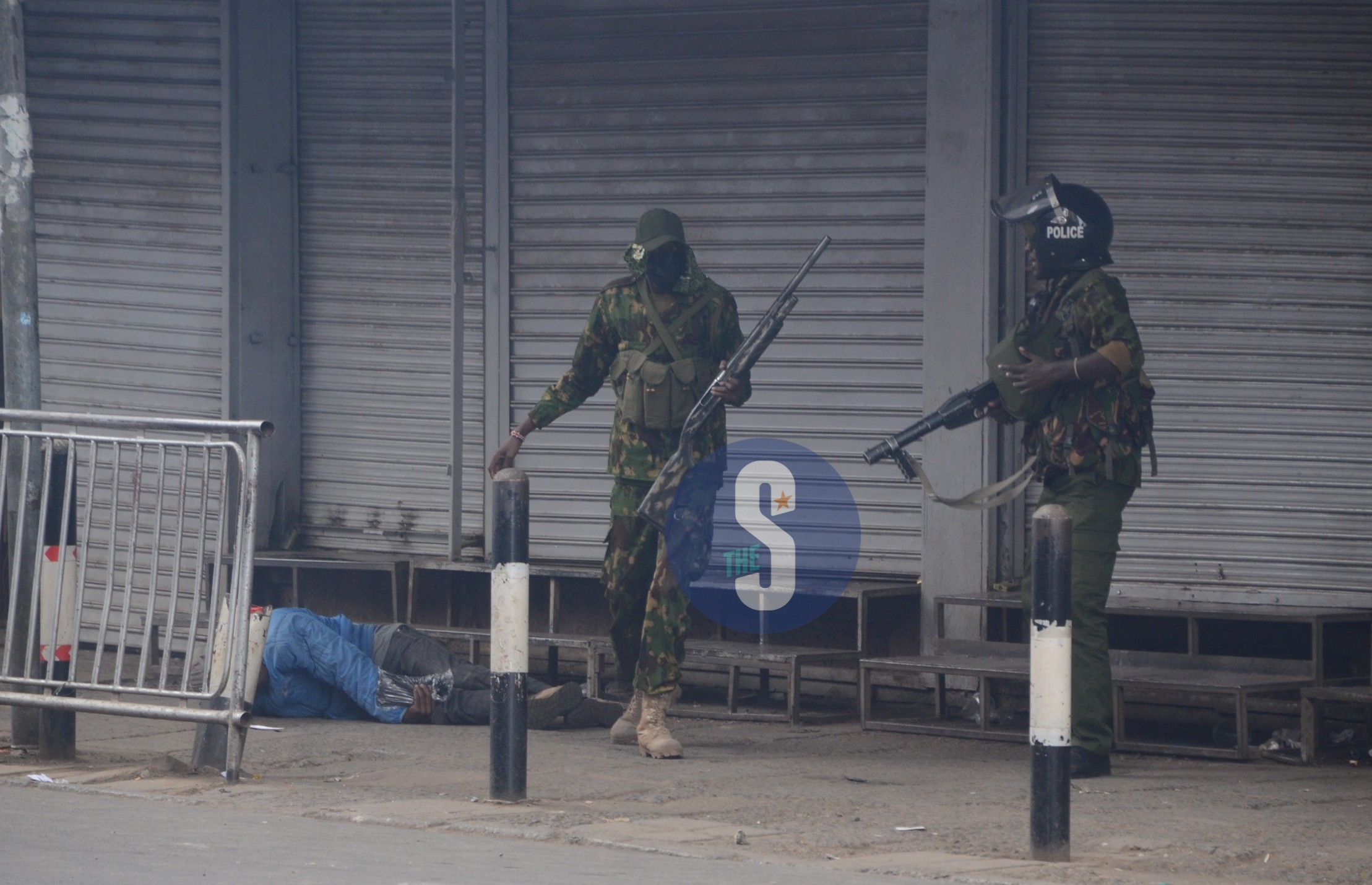
As Kenya grapples with rising public outcry over police brutality and excessive force, it is becoming clear that the challenge of excessive force is not unique to its borders.
From the Netherlands to the US and France, police forces around the world are under scrutiny for how they handle citizens, especially during protests.
The global patterns offer valuable comparisons, and critical lessons.
Recent revelations in the Netherlands shows that Dutch police used violence 36,000 times in 2024, matching the previous year’s count.
This, indicates that balancing public safety and human rights, is not confined to countries with countries like Kenya alone, but a struggle faced even in well-established democracies.
Even in highly regulated systems like the Netherlands, questions around police conduct, public trust, and proportionality of force persist.
Complaints over excessive force have increased significantly, especially during public demonstrations.
Kenya is not alone in dealing with the complexities and controversies surrounding police use of force.
In the US, the conversation is far more charged.
According to Mapping Police Violence, American police killed over 1,200 people in 2023, disproportionately affecting black and latino communities.
In 2024, it said, 1,365 people were killed by police, making it the deadliest year since recording began in 2013.
Despite a national decrease in violent crime, police killings continued to rise, further exposing the urgent need to rethink public safety.
Police departments across the US are under pressure to reform training, curb racial profiling, and demilitarise policing.
However, resistance from police unions and fragmented oversight across states have slowed progress.
France, too, has witnessed widespread unrest tied to police conduct. In 2023, the fatal police shooting of a 17-year-old during a traffic stop sparked nationwide riots.
Amnesty International and local rights groups have criticized the French police for "systemic abuse," particularly in low-income, immigrant-dense suburbs.
Teargas and baton charges during protests have become frequent, even as the government pledges reform.
In the UK, the issue is less about lethal force, firearm usage is rare, but more about discrimination and excessive use of stop-and-search powers.
The Independent Office for Police Conduct (IOPC) has flagged a lack of accountability in cases involving ethnic minorities, prompting new guidelines on use of force and transparency.
Of the 36,000 instances of force by the Dutch police, two-thirds involved subduing suspects during arrests, while the remaining cases required use of weapons like truncheons (3,000 times), tasers (1,100), and pepper spray (750).
Officers drew their firearms 1,700 times, but shots were fired in only 13 cases, a contrast with Kenya, where fatal shootings by police remain less transparent.
The Dutch data further shows a troubling link between policing and mental health where 38% of cases involved individuals with mental health conditions, a 4% increase from 2023.
According to Amsterdam police chief Peter Holla, such encounters are “unpredictable and dangerous,” and often demand greater tactical restraint.
“People acting erratically are often unpredictable and therefore a danger to themselves and others,” Holla told broadcaster NOS.
In contrast to Kenya, where de-escalation training is rarely emphasised, Dutch police undergo a two-year training program that includes modules on non-violent conflict resolution.
Yet even this has proven insufficient. A police academy spokesperson admitted demand for additional training in communication and de-escalation now exceeds supply, leaving many officers on a waiting list.
Despite widespread use of force, violence occurred in less than 1% of Dutch police call-outs, a fact officials often cite to stress that verbal negotiation remains their "most important weapon."
Still, the Netherlands recorded 900 complaints about police conduct during demonstrations in 2024, up from 750 the previous year.
Internal investigations judged 295 incidents as involving disproportionate or inappropriate force. Against this backdrop, Kenya’s own struggle with police accountability fits into a wider international pattern.
The Dutch experience mirrors some of Kenya’s ongoing policing challenges which include underfunded training, staff shortages, a growing number of violent encounters with civilians, including those suffering mental illness, and rising mistrust from the public.
But it also points to possible solutions of transparency in reporting, accountability through independent investigations, and investment in non-violent conflict skills.
As the Independent Policing Oversight Authority (Ipoa) continues to face growing pressure to hold rogue officers accountable, global comparisons like this indicates that the quest for a more restrained, professional police force is not a Kenyan problem, but a global one.
The clamor for the government to hold rogue officers accountable was renewed recently following the death of Albert Ojwang while in police custody.
Police had earlier claimed he died after hitting his head on the wall pointing to a case of suicide. This was, however, reconstructed, after a postmortem which revealed that he was assaulted.
Already several police officers are in custody in connection to the incident.
A similar incident followed during the protests over the death of Ojwang where a police officer shot a man at close range in Nairobi CBD.
What the Netherlands and other nations offer is not a perfect model, but a framework for reform.
Dutch police, for instance, has a clear use-of-force reporting where every incident of force is logged, unlike in Kenya where data is often sketchy or concealed.
In countries like Netherlands and UK, there are dedicated mental health protocols such that has specialised units handle psychiatric crises.
While Dutch police receive de-escalation training, in Kenya, officer training remains underfunded and outdated. Civilian oversight also need to be strengthened.
Stronger independent review bodies, like IOPC in the UK, can also ensure accountability beyond internal police mechanisms.








